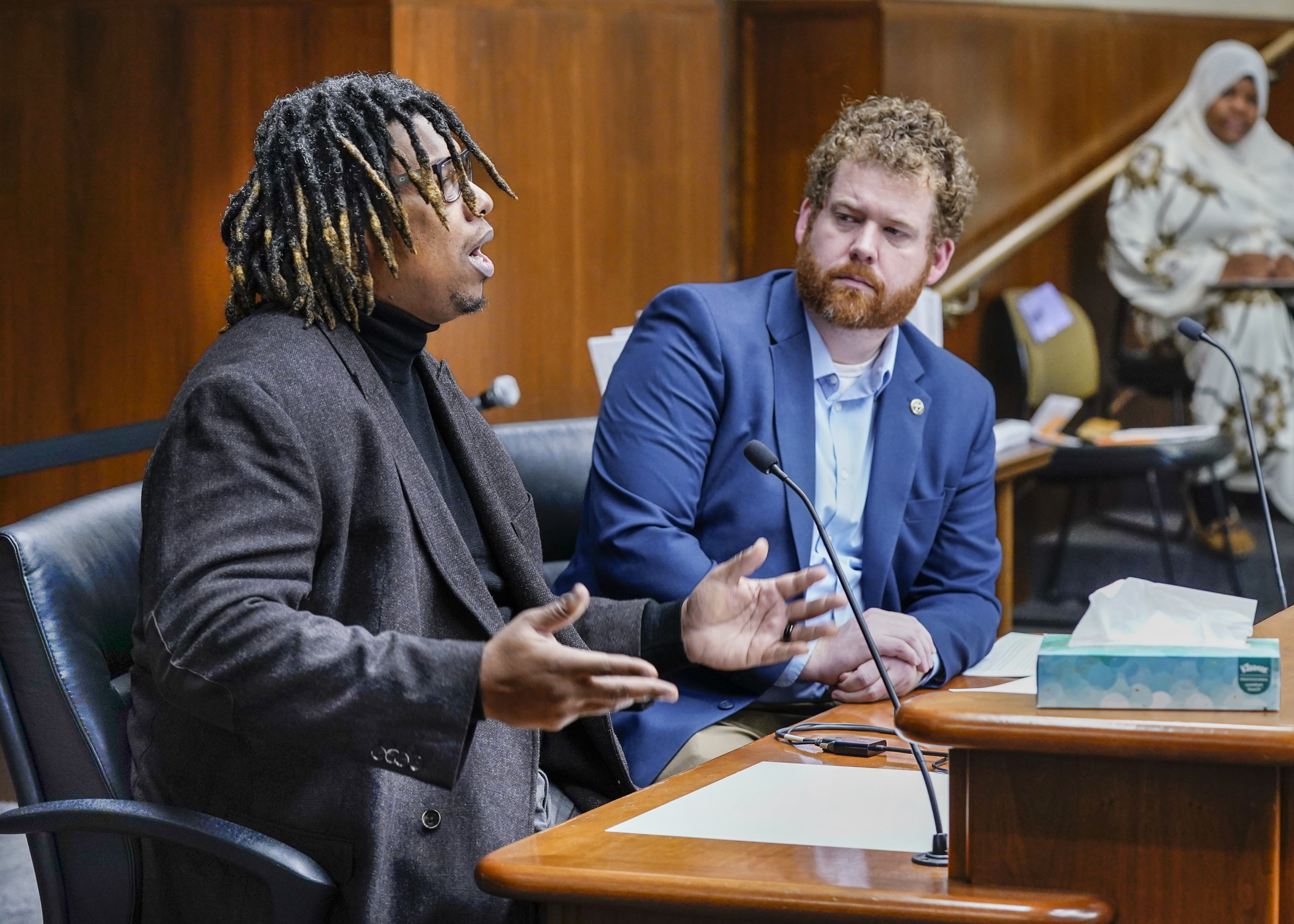Public safety panel considers bill that would create new classification of crime to fight rising retail thefts

Shoplifting is a crime. We can all agree on that.
But slipping a candy bar into your pocket and sneaking it out of a convenience store is fundamentally different from the dramatic smash-and-grab thefts of large amounts of merchandise seen more and more often on television news.
That’s a problem for prosecutors in Minnesota who don’t have the proper legal tools to bring charges reflecting the seriousness of large-scale and sometimes violent organized retail theft.
It’s time that Minnesota statutes are updated to properly prosecute this rapidly growing crime and apply tougher penalties on those who commit it, says Rep. Zack Stephenson (DFL-Coon Rapids).
To that end, he sponsors HF450, which would establish a new crime of organized retail theft, including adding felony-level penalties for the most serious offenses.
The House Public Safety Finance and Policy Committee laid the bill over Tuesday for future consideration.
A key definition in the new crime would be that the person committing it doesn’t keep the stolen items for personal use or consumption, but intends to fence them, or turn them into cash.
The bill stipulates that a person who receives stolen retail merchandise knowing that it was stolen could also be sentenced for organized retail theft, as would someone using “any device, gear, or instrument designed to assist in shoplifting or defeating an electronic article surveillance system.”
Walter Dillon was the victim of five break-ins in a six-month span. His “KKG Kickz” sneakers store in Little Canada is now closed, the result of brazen thieves smashing doors and windows and hauling away bags and bags of merchandise.
“I do believe these were organized crimes. I don’t believe the punishment is harsh enough,” he said.
No matter how many security upgrades were made, the thieves still broke in. In addition to taking merchandise, they broke Dillon’s dream of keeping his business viable.
After the fifth break-in, Dillon said his insurance company stopped paying out claims and his landlord voided his lease.
A gross misdemeanor penalty could be imposed for organized retail theft if the property stolen has a value of less than $500, and a felony with a maximum sentence of 15 years in prison could be imposed if the value of the property stolen exceeds $5,000.
Violent large-scale thefts would also be more heavily penalized, with gross misdemeanors increasing to felonies, and maximum sentences for felony crimes being increased by 50%.
Related Articles
Search Session Daily
Advanced Search OptionsPriority Dailies
Speaker Emerita Melissa Hortman, husband killed in attack
By HPIS Staff House Speaker Emerita Melissa Hortman (DFL-Brooklyn Park) and her husband, Mark, were fatally shot in their home early Saturday morning.
Gov. Tim Walz announced the news dur...
House Speaker Emerita Melissa Hortman (DFL-Brooklyn Park) and her husband, Mark, were fatally shot in their home early Saturday morning.
Gov. Tim Walz announced the news dur...
Lawmakers deliver budget bills to governor's desk in one-day special session
By Mike Cook About that talk of needing all 21 hours left in a legislative day to complete a special session?
House members were more than up to the challenge Monday. Beginning at 10 a.m...
About that talk of needing all 21 hours left in a legislative day to complete a special session?
House members were more than up to the challenge Monday. Beginning at 10 a.m...